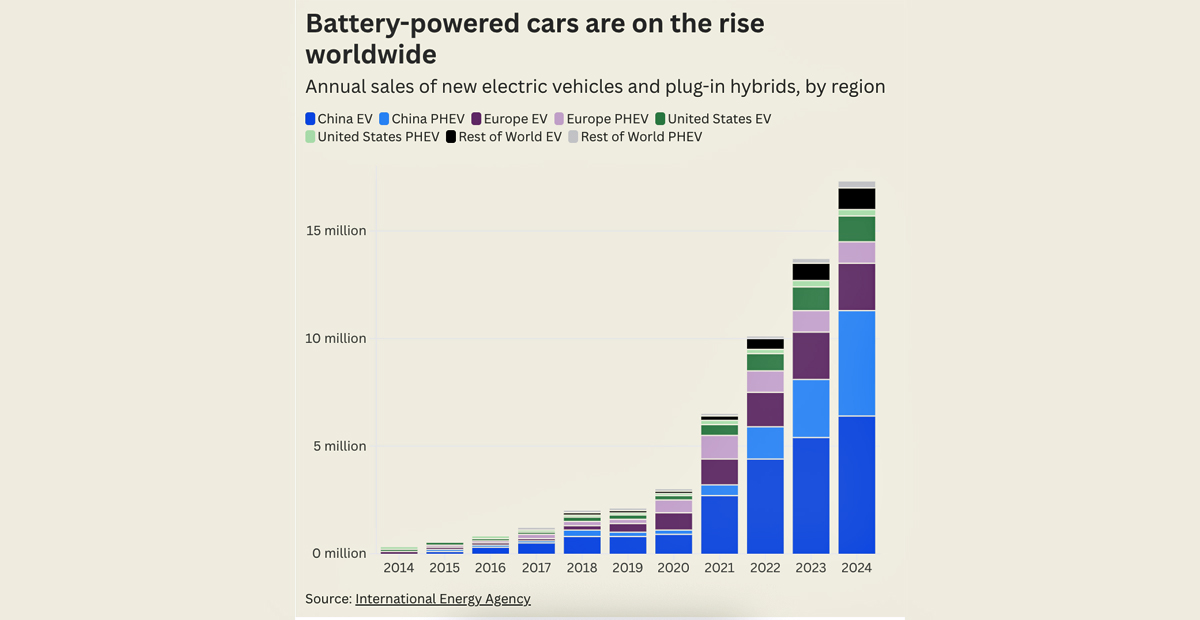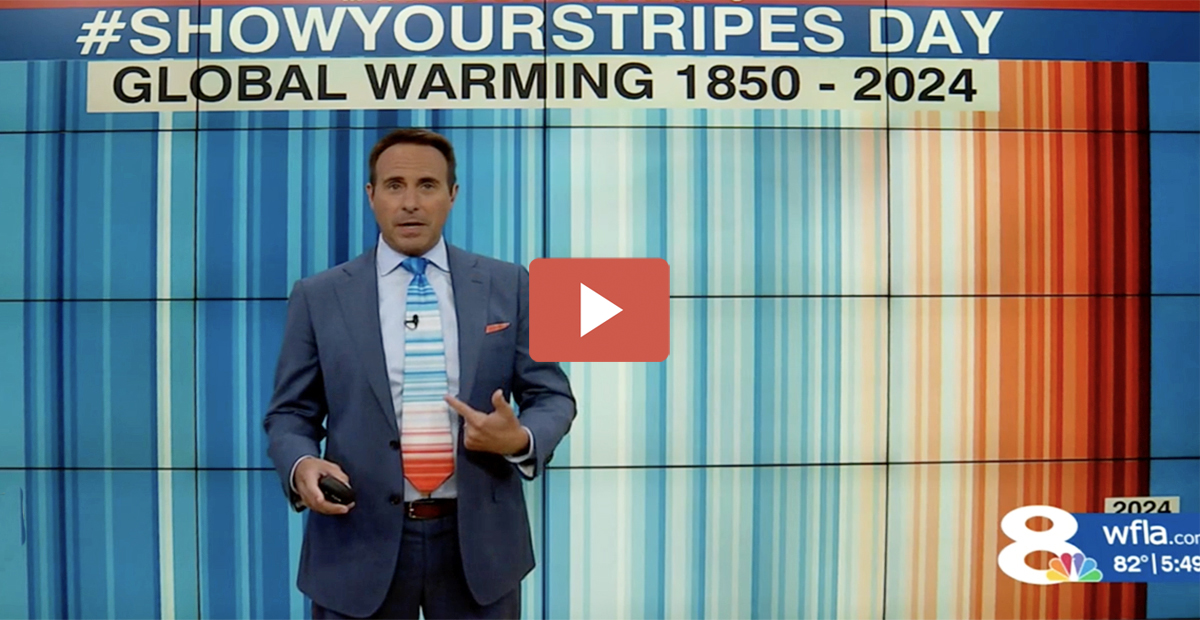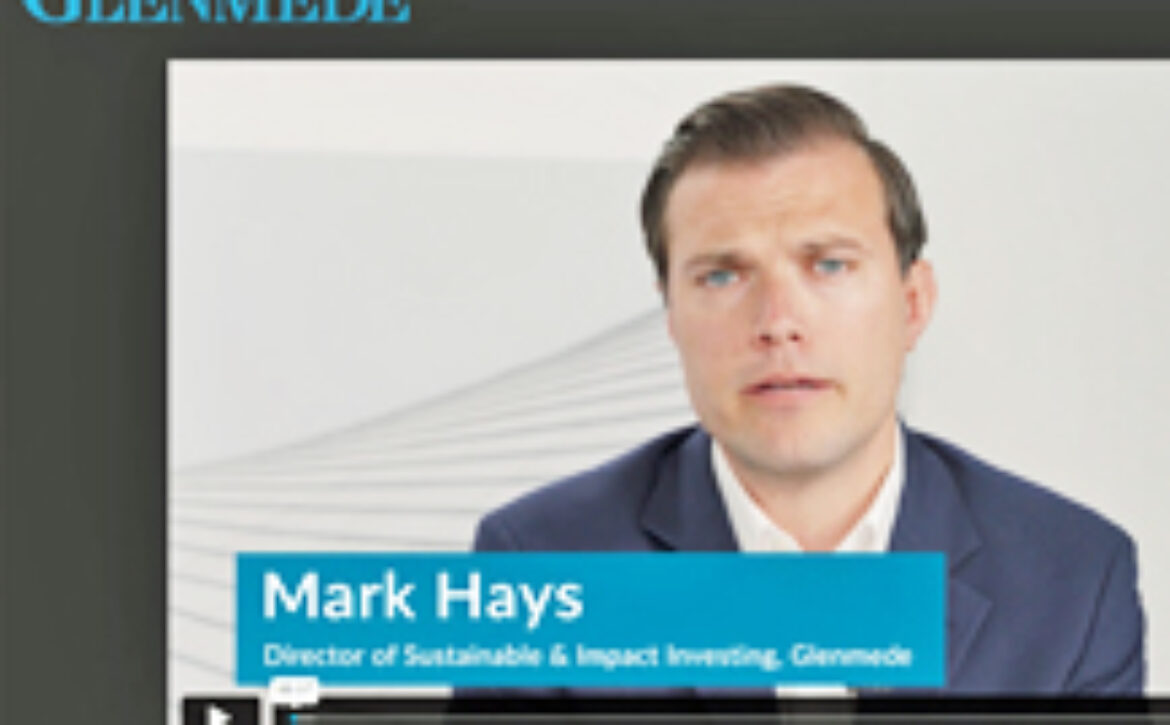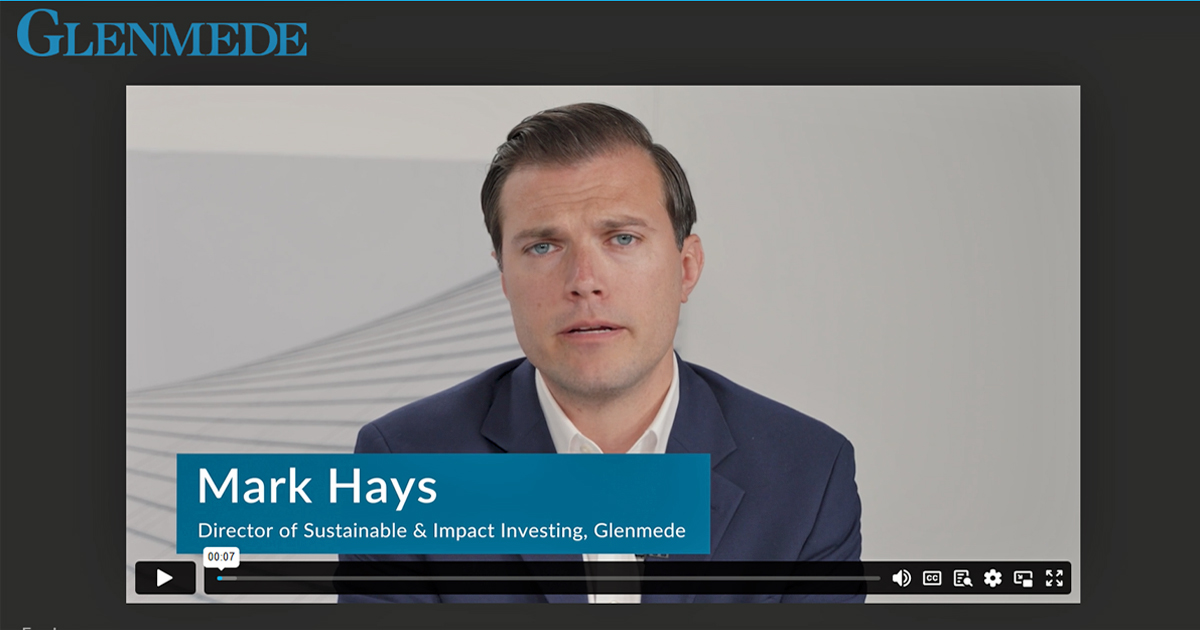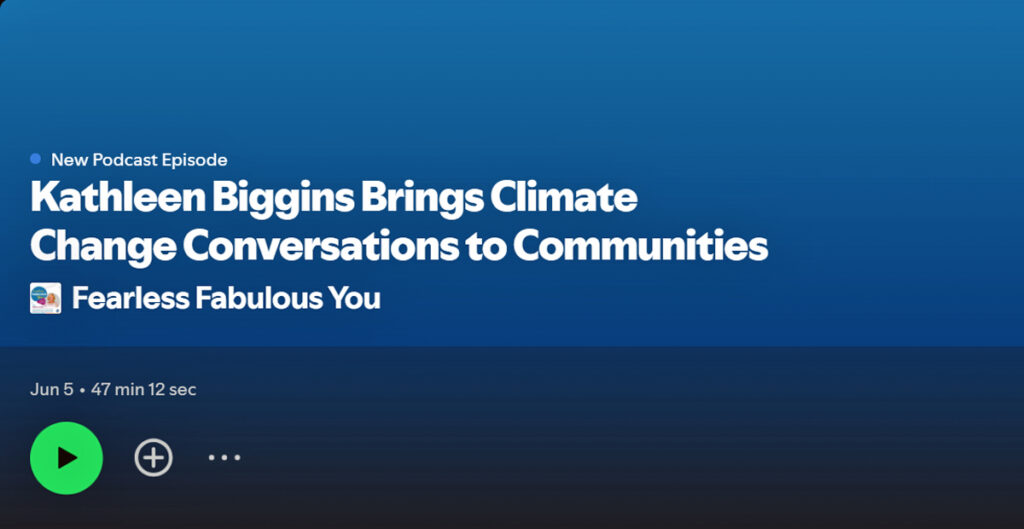June 2025
Dear Friends,
We may be heading into the bright days of summer here in the United States, but it’s a dark and difficult time in the world of climate change.
I won’t pull punches: the administration’s moves to curtail clean-energy growth and double down on fossil fuel dependence are truly dangerous. We are “all in” for energy abundance and security, and recognize both the need to meet skyrocketing demand, and that fossil fuels will continue to play an important role into the future. But the administration’s perspective is outdated and myopic – we now know beyond a doubt that climate change will create great insecurity and economic pain on a scale that dwarfs any short-term benefit from reverting to fossil fuels. And abandoning our research and support of newer technologies will make us much less competitive on the global stage as the rest of the world embraces these new resources.
Audiences who have seen our Primer understand this. They know the extraordinarily high economic costs of continuing the unabated use of fossil fuels at our current rate. They understand the pain climate change will bring to our communities – the hotter temperatures, more extreme rainstorms, higher levels of disease. They also understand how climate change is expected to harm access to affordable home insurance, home values, and broader investments.
Our audiences also understand the remarkable potential of new and emerging low-carbon alternatives, and the energy security, independence, and economic growth they provide.
In short, they understand the big picture: A 360-view that enables them to be more knowledgeable citizens who can use their influence to help control their – and collectively, all of our – futures.
C-Change is out there fighting misinformation and creating buy-in for action. We are truly nonpartisan – we’ve even been asked by the President’s supporters to bring our presentation to the White House to share with the administration. We believe this underscores how we view this challenge: as a human issue, not a partisan one.
It is a critical time and we need your help. Introduce us to new audiences. Support us financially. Share our blogs and podcasts.
We are all in this together.
Sincerely,
Kathleen Biggins
Founder and President![]()
C-Change Podcasts are Streaming
C-Change webinars and interviews are now available as podcasts for millions to follow on multiple streaming platforms! You can follow us on Substack, Spotify, Apple Podcasts, and YouTube. We hope you’ll subscribe and spread the word!
And if you don’t already, please follow us – and share our content – on our other social media channels: LinkedIn, Facebook, Instagram, and Threads.
And Speaking of Podcasts
We were fortunate to be featured on three podcasts recently – and you can listen to all.
Don Gordon, founder of Christians Caring for Creation (C3), a nonpartisan organization, featured Kathleen on the C3 podcast, which addresses key issues related to ecology and theology. Don attended a Primer presentation in Charlotte, N.C., and was enthusiastic about sharing our approach and message with Christians around the world. Don is a Baptist minister, and he and Kathleen spoke about many points, including the ethic of stewardship, the Christian belief that we are responsible for leaving the world in as good of shape – at least – as we found it. Take a listen.
And on a trip to her hometown of New Orleans, Kathleen sat down for an interview with Melanie Young, host of the podcast “Fearless Fabulous You.” They talked about how life can give us “second chapters,” and discussed Kathleen’s journey from advertising to launching C-Change. Melanie also does podcasts on food and wine – her take on how farmers and vintners around the world are feeling climate change’s impacts is an eye-opening one.
Kathleen sat down with Shannon Maganiezin, host of “Climate Corrections,” to talk about why it’s essential to bridge political divides if we want to create meaningful climate action. They discussed how to engage climate-change skeptics — and how to talk about this charged topic without sparking conflict at the dinner table. “Climate Corrections” is the podcast of the VoLo Foundation, a private organization that strives to “accelerate change and global impact by supporting science-based climate solutions, enhancing education, and improving health.”
An Interview with New York Times reporter David Gelles
Want to share some compelling insight on climate change with your family and friends? Consider forwarding our interview with New York Times climate reporter David Gelles, recorded during our April 24th Spring Benefit in Princeton, N.J. If you haven’t watched it yet yourself, we hope you do – David’s thoughts on what we’d face in a “3-degree world” are sobering, but his ready sense of optimism that we can still navigate to a safer future left us inspired and hopeful!
To pre-order David’s forthcoming book, Dirtbag Billionaire: How Yvon Chouinard Built Patagonia, Made a Fortune, and Gave It Away, click here. (Publication date is Sept. 9, 2025.)
Connections in New York City and Philadelphia
In April, C-Change Conversations treasurer Catherine Sidamon-Eristoff and Kathleen presented to the Junior League of New York. Catherine is a long-time Junior League member and it was rewarding to present to so many engaged audience members. There was even an international climate expert in the audience who not only commended our efforts, but offered her assistance! We hope this is the first of many events with the Junior League.
Talking about how climate change will impact our financial security is a priority for C-Change. In May, Kathleen moderated a discussion on investing in climate solutions at ImpactPHL’s Total Impact Summit in Philadelphia. More recently, Kathleen joined Mark Hays, director of sustainable and impact investing at Glenmede, a wealth investment firm, for a webinar about the intersection of climate, the economy, and investment strategy. We’ve enjoyed an ongoing partnership with Glenmede and look forward to more events together this summer!
Growing as a Trusted Messenger
C-Change is presenting programs in more places than ever before – and we’re increasingly called upon by respected organizations and institutions to talk about our nonpartisan approach. Recently, we have been invited to discuss our outreach with the Carnegie Center for International Peace and the American Geophysical Union (AGU).
C-Change was also interviewed about the impacts of climate change for a USA Today special edition on Earth Day (print only).
On the Road in North Carolina
Kathleen was delighted to head to Asheville, N.C. in April. It was the first time that C-Change has presented in this part of the Appalachians, but not Kathleen’s first trip to the area. She was shocked by the lingering destruction wrought by Hurricane Helene last fall – vibrant commercial centers still empty, trees like matchsticks still littering the hillsides, drowned railroad cars that had been pulled from the river onto its banks. It was a stark reminder of the magnitude of the damage that storms fueled by climate change can wreak. Studies show that climate change made Helene’s devastating rainfall 70% more likely in the Appalachian Mountains.
With Helene still fresh in their minds, the audiences in Asheville were particularly appreciative of our Primer presentations. Kathleen kicked off a public speaker series that featured other climate-oriented speakers including renowned climate scientist Katharine Hayhoe and New York Times columnist and author Margaret Renkl. This standing-room-only event was held at Trinity Episcopal Church, which partnered with the French Broad River Garden Club and the McCullough Institute of UNC-Asheville for the event. Kathleen also presented at the Ramble Biltmore Forest community and at Warren Wilson College, where students gathered at the end to say thank you for not leaving them alone in this fight against climate change.
From Asheville, Kathleen headed to Charlotte, N.C., where she presented the Primer as part of “Bridging Faith and Science: Spiritual Insights and Climate Change Conversations” at St. Peter’s Catholic Church. Kathleen also presented to the International Women’s Forum of the Carolinas, a live event that was simulcast on Zoom for viewers around the world, as well as to Women in Business, a local organization.
B-Change: Helping Solve Climate Change by How we Shop
Did you know that our wardrobe choices can contribute to climate change – or can help solve the problem? Our latest B-Change blog is a fascinating look at the global fashion industry’s carbon footprint. There’s great guidance here on simple changes we can make while clothes shopping to reduce our own. We hope you’ll read and share.
C-Change, Athens Georgia
The Athens Area Community Foundation Clean Energy Fund has officially launched, thanks to the efforts of affiliate member Sally Coenen. She has been brainstorming ways to raise money for the fund with AACF Director Sarah McKinney and Director of the Southern Sustainability Institute Laura Iyer. The fund will support projects and initiatives that promote renewable energy, energy efficiency, and climate resilience within the community.
Affiliate member Helen Kukendall recently attended a meeting of representatives from local climate groups to discuss alternative funding for clean-energy projects given the recent federal funding cuts.
As co-chair of the Sustainability Advisory Committee for the Clarke County School District, affiliate member Ramsey Nix helped present the committee’s final recommendations to the Board of Education in April. Committee members have met monthly since January 2024 to write plans to help the school district implement renewable energy and green infrastructure, minimize waste, and reduce its carbon footprint.
Ramsey also recently joined members of the Southern Alliance for Clean Energy, Moms Clean Air Force, and Climate Action Campaign to deliver letters to Senator Jon Ossoff’s Atlanta office in support of electric buses on World Asthma Day. Her essay about the experience was published on the SACE Website.
After participating in the 2025 Georgia Power Integrated Resource Plan (IRP) training program offered by Southface and Georgia Interfaith Power & Light, the affiliates are focused on advocating for increased renewable energy through the Public Service Commission. The IRP will be up for a vote this July, so the Athens C-Change newsletter has been publicizing speaking and letter-writing opportunities.
Athens affiliates have been encouraging state legislator Spencer Frye to introduce a clean-energy bill, and this February he wrote and then held a hearing on House Bill 402. The bill proposes facilitating the generation, storage, and transmission of renewable energy. It did not move past the committee this session, but the Athens affiliates will continue to push for it when the Georgia legislature reconvenes.
Finally, Ramsey and Sally are participating in the C-Change speaker-training program with hopes of delivering educational programs about climate change in the Athens area.
Upcoming Events
July 24, Stone Harbor, NJ – Glenmede wealth management
Sept. 22-24, Jacksonville, FL – multiple events
Oct. 1, Princeton, NJ – Windrows community
Oct. 1-4, Memphis, TN – multiple events
Oct. 17, Villanova, PA – symposium



